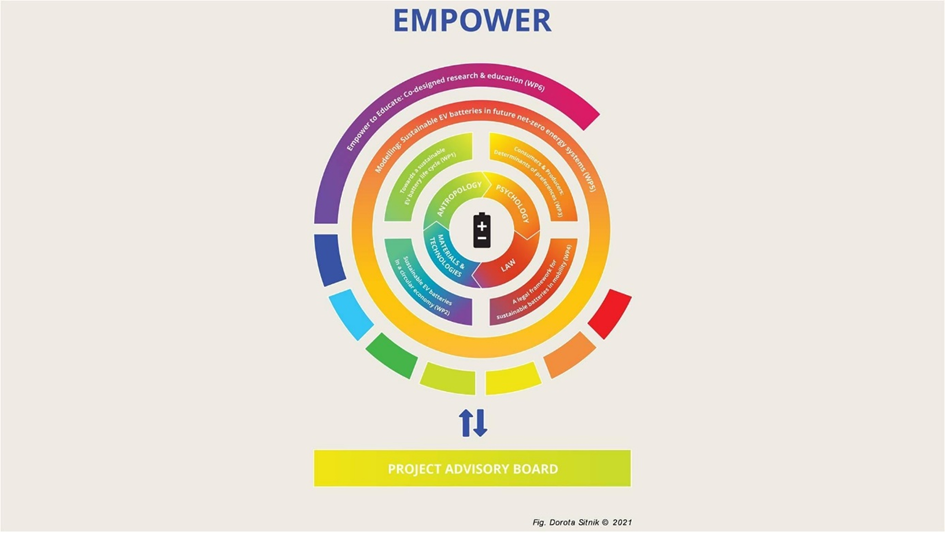About the Project
Transport is the highest greenhouse gas emitting sector, and Norway is the global leader in EVs by encouraging its citizens to switch to the use of EVs with green tax deals. The European Commission published a new proposed regulation to replace the Batteries Directive 2006, with the aim of paving way for sustainable batteries for a circular and climate-neutral economy and securing sustainable battery development, production, usage, and end-of-life management in the future.

The current research on sustainability lacks a truly interdisciplinary approach, hence, the EMPOWER Project will bridge the gap, and bring a unique, yet unexplored perspective on the potential of EV batteries in the circular economy and energy systems. EMPOWER will develop an encompassing long-term strategy toward sustainable EV batteries, allowing Norway to become a frontrunner in the field. The EMPOWER Project is an interdisciplinary project working with colleagues from the Department of Technology Systems, Psychology, Informatics, Mathematics, Education, and Private Law with the objective of answering the overarching research question: how can batteries used in mobility empower the transition to a net-zero system in Norway?
In Norway, electric cars made up 79.3 percent of all new cars sold in 2022. While working towards decarbonised transport sector, Norway also has an obligation to account for the environmental costs related to the broad utilisation of batteries, including energy use, mineral extractions, and chemical waste, and to become a role model in building a sustainable circular economy. Thus, are the laws that are currently regulating EV batteries, and their ownership in Norway and the EU sufficient and adequate to achieve sustainable EV batteries? And how could the law and policies further be improved in a sustainable circular economy and improve social and environmental standards throughout the lifecycle of EV batteries?
These are the challenging questions that I intend to answer in my doctoral thesis. Answering such questions is crucial to developing a strong and coherent regulatory framework for sustainable batteries in the net zero emissions target (the balance between the amount of greenhouse gas produced and the amount removed from the atmosphere).
Goal
The project will be completed by the end of 2025.
Financing
Financed by the UiO: Energy project.
